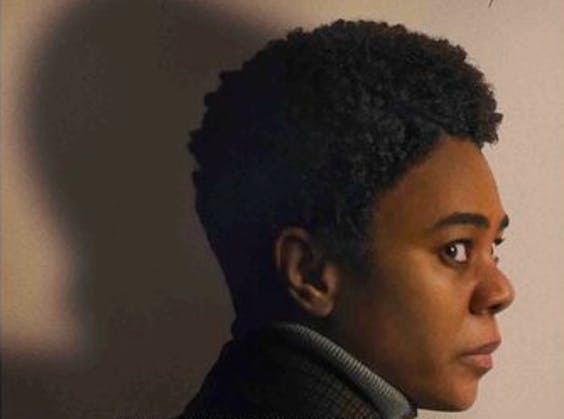Set at a College, ‘Master’ Mixes in Too Many Lectures With Some Fine Suspense
The director amplifies sociological buzz-trends — critical race theory, microaggressions, privilege, and white supremacy among them — to a level bordering on satire.

The standard line on horror movies is that they serve as barometers of social or historical dysfunction.
Echoes of World War I, the Depression, the Cold War, and Vietnam are seen, to one extent or another, in films such as “The Cabinet of Dr. Caligari” and Boris Karloff’s lumbering take on Mary Shelley’s “Frankenstein,” and in the depictions of human replicants growing from pods and flesh-eating zombies.
A film written and directed by Mariama Diallo, “Master,” is styled very much in this mode.
“Master” employs two divergent characters to tell a single story. Zoe Renee is Jasmine Moore, an incoming student at Ancaster, a fictional New England college complete with a rambling, upper-crusty campus of picturesque 19th-century buildings. Regina Hall is Gail Bishop, the school’s newly appointed master and one of two African American faculty members. The job she’s signed on for includes a host of responsibilities, not least of which is dealing with a ghost haunting the freshman dorms.
Who’s doing the haunting? This is New England, so witches, puritans, and Nathaniel Hawthorne figure into it.
Jasmine suffers a spate of nightmares, as well as blatant harassment. A cross is burned outside her dorm window; a noose is left on the doorknob. The new master encounters her own difficulties: a ceramic Mammy figurine in the kitchen, phrenologist sketches in the attic, and maggots pretty much everywhere.
There’s also Liv Beckmann (Amber Gray), a stridently politically correct instructor of literature and a person of color undergoing tenure review — which is, as you might imagine, another whole kettle of intrigue. Anyone conversant with the travails of cancel culture will recognize that Professor Beckmann is based on real-life cases involving academics who weren’t quite on the up-and-up regarding their qualifications.
Elsewhere, Ms. Diallo amplifies sociological buzz-trends — critical race theory, microaggressions, privilege, and white supremacy among them — to a level bordering on satire.
With its back-channel machinations and do-gooder nostrums, academia of course deserves some upbraiding. Ms. Diallo is overly serious, though. When the movie ends with Bishop declaring that “you can’t escape it” — meaning racism — you wonder, exactly, when “Master” takes place. The year 2022, after all, is far different from 1962 or, for that matter, 1619.
This isn’t to deny that America’s past has its own peculiar set of moral failings or that the reach of history isn’t daunting or decisive. Yet to posit academia as a haven of slavering racists culled from a vintage copy of “Tales from the Crypt” is to engage not in horror, but in fantasy.
Ms. Diallo’s experience as a student at Yale was, as she has shared in recent interviews, unsettling. Just as unsettling are the identity politics — often shopworn and sometimes specious — propagated by our cultural elites.
As a filmmaker, Ms. Diallo is deft at building suspense and creating atmosphere. As a visionary, she’s a step or two behind the zeitgeist. Audiences of all stripes will likely leave “Master” feeling like they’ve been talked down to.

